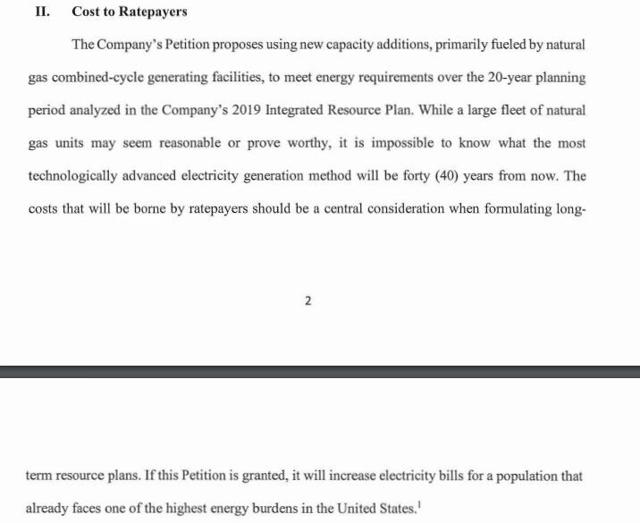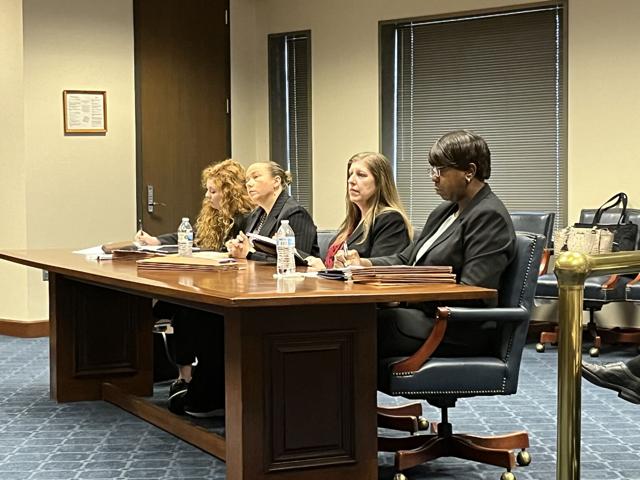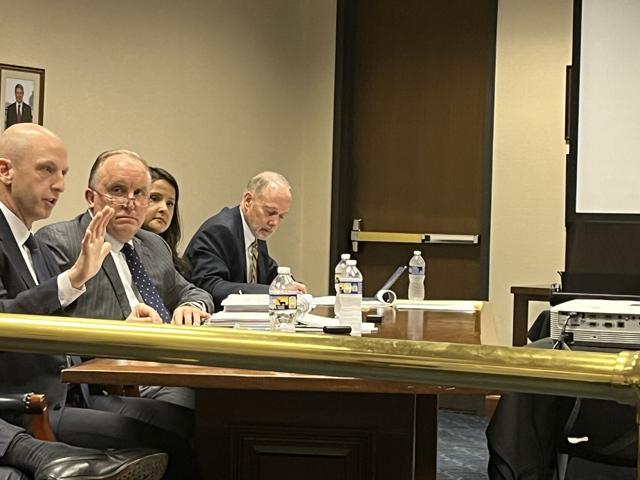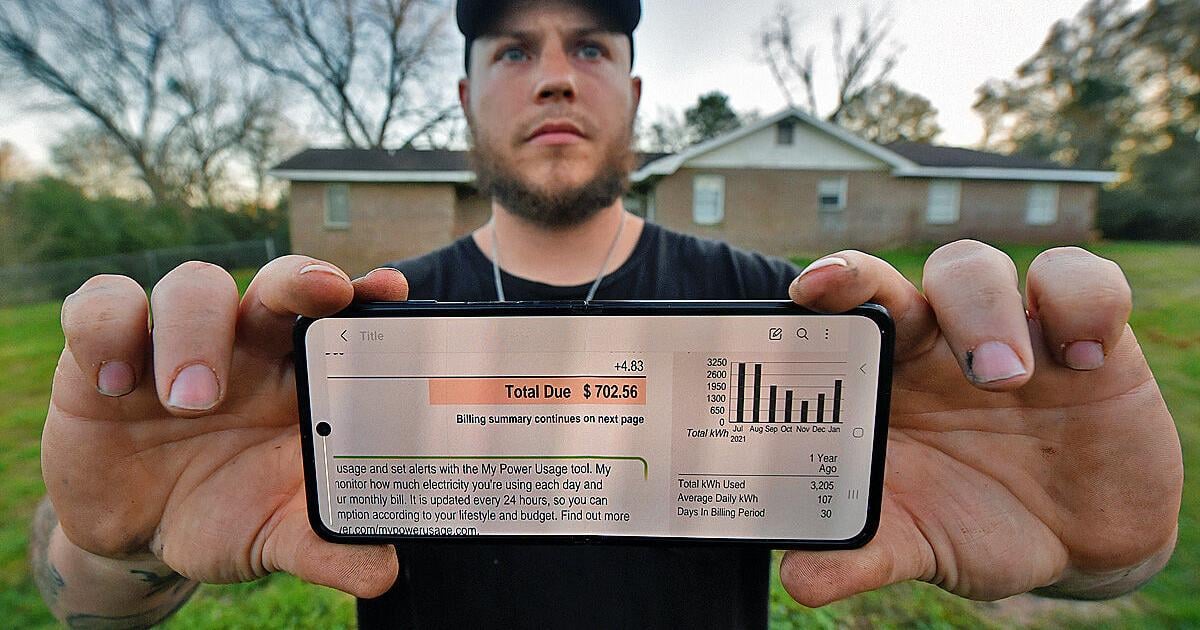
Big profits, big bills: Alabamians pay some of the nation’s highest electricity costs
Joshua Remley and his wife Elizabeth were shocked last year when their monthly power bill topped $700, well above the $170 to $250 or so they paid when they moved
PATRICK WILSON Opelika-Auburn News Feb 7, 2023 Updated Feb 7, 2023
Felicia Trammell of Opelika talks about the difficulties paying her Opelika Power Services electric bill. Video by Patrick Wilson/ Lee Enterprises
Joshua Remley and his wife Elizabeth were shocked last year when their monthly power bill topped $700, well above the $170 to $250 or so they paid when they moved into their house four years ago.
They’d wondered if they missed a payment to Alabama Power Company the prior month. But they hadn’t.
The increase was so dramatic that the couple had to forgo paying other bills on time and incur penalty fees. “It’s pretty much just been a catch up game,” said Remley, who lives in Pinckard.
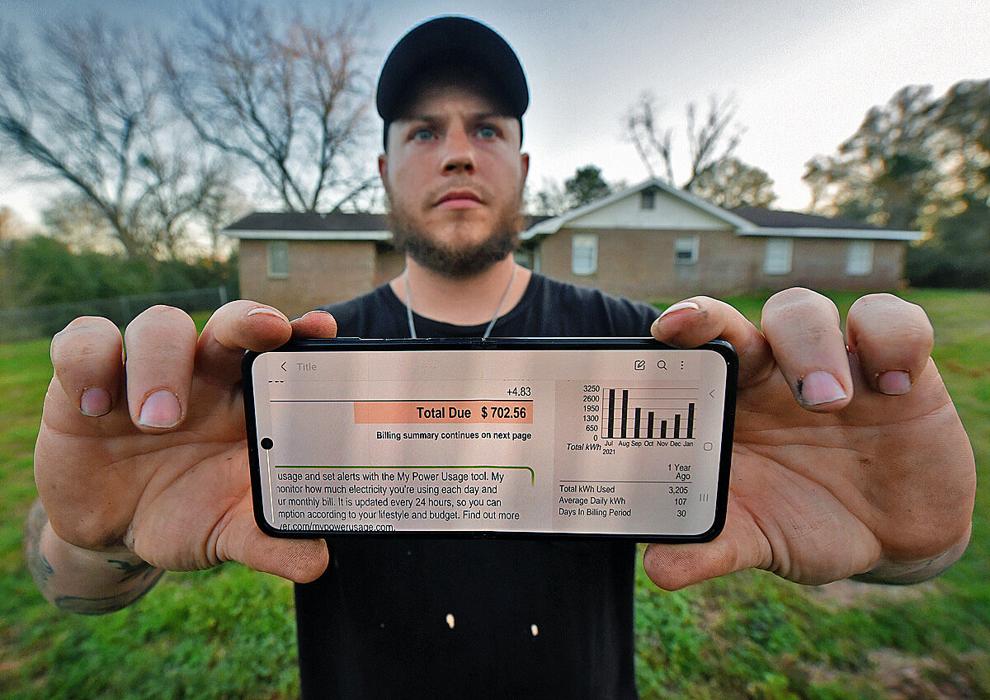
Joshua Remley, standing in front of his family’s home in Pinckard, Ala., on Tuesday, Jan. 31, shows a copy of a monthly electric bill that his family received from Alabama Power last year.
JAY HARE, DOTHAN EAGLE
For over a decade, Alabama’s residential electricity bills have been in the top three highest in the nation. Spikes in natural gas prices and home heating costs are compounding the problem for Alabamians.
And while Remley and others are adjusting their budgets, Alabama Power raked in higher profits than comparable electric utilities in other southern states, an investigation by the Opelika-Auburn News and Dothan Eagle found.
In one of the poorest states, the only investor-owned electric utility earns one of the biggest profit margins in America. Documents from experts filed in another state, for example, show Alabama Power earning a 38% higher profit margin than neighboring Georgia Power.
Critics say people are paying too much and fault the three elected Republican commissioners on the Alabama Public Service Commission for not holding formal hearings on Alabama Power’s profits. Commissioners oversaw four Alabama Power rate increases for the company’s 1.5 million customers in Alabama in 2022 without hearings or sworn testimony.
Critics also say the commission over the past decade allowed Alabama Power to become overly reliant on natural gas to produce electricity while ignoring cost-efficient renewable energy.
“Not only are we paying for the gas plants, but we’re paying for the fuel cost increases because of the price volatility of gas,” said Christina Andreen Tidwell, a senior attorney with the Southern Environmental Law Center in Birmingham. That organization backs clean energy and wants to limit fossil fuel production to protect the environment.
“Decisions that the Public Service Commission makes are why you’re paying more for fuel costs now.”
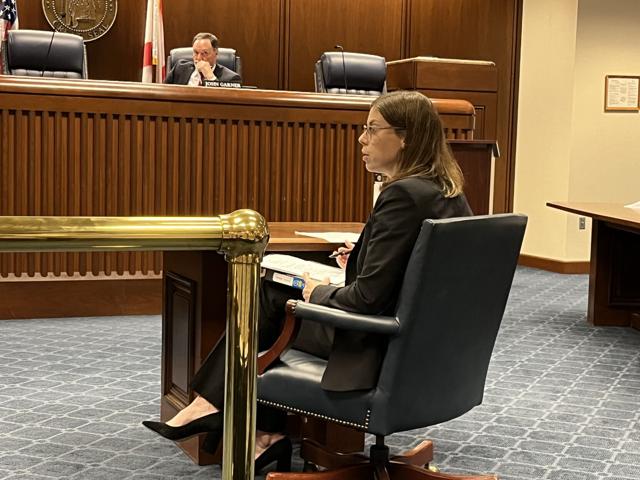
Christina Andreen Tidwell, a senior attorney with the Southern Environmental Law Center in Birmingham, questions representatives of Alabama Power Company on Dec. 13, 2022, at a meeting of the Alabama Public Service Commission in Montgomery. Judge John Garner, the commission's chief administrative law judge, presided over what he called an "informal meeting."
PATRICK WILSON
Officials with Alabama Power—the second largest utility within Atlanta-based Southern Company—opted not to be interviewed for this story, or to answer questions in writing about their profit margin and rate increases.
In a statement, company spokeswoman Alyson Tucker said the company’s electricity prices are below the national average.
“Our long-term planning helps us provide the dependable power our customers trust us to deliver, especially in extreme weather situations. In doing so, we invest in our grid and various fuel types and sources,” she said. “We offer a number of programs to help reduce bills by better managing energy use and to provide direct assistance to customers in need, including a discount for customers on Medicaid and time-of-use rates to save money based on when and how major appliances are used.”
Meanwhile, a former member of the commission says it’s under political control of the company it regulates.
Terry Dunn, a Republican who lost re-election in 2014 when he was subject to attacks falsely labeling him as a liberal environmentalist, said he learned quickly that regulators didn’t make decisions without approval of Alabama Power Company, whose lobbyists permeated the commission’s offices.
“They’re regulating themselves,” he said of the company. “Alabama Power handpicked basically everybody that was in office other than me.”

Terry Dunn, a Republican and former member of the Alabama Public Service Commission, was defeated in a re-election bid in 2014 after dark money groups tied him to "liberal environmentalists."
Courtesy photo
